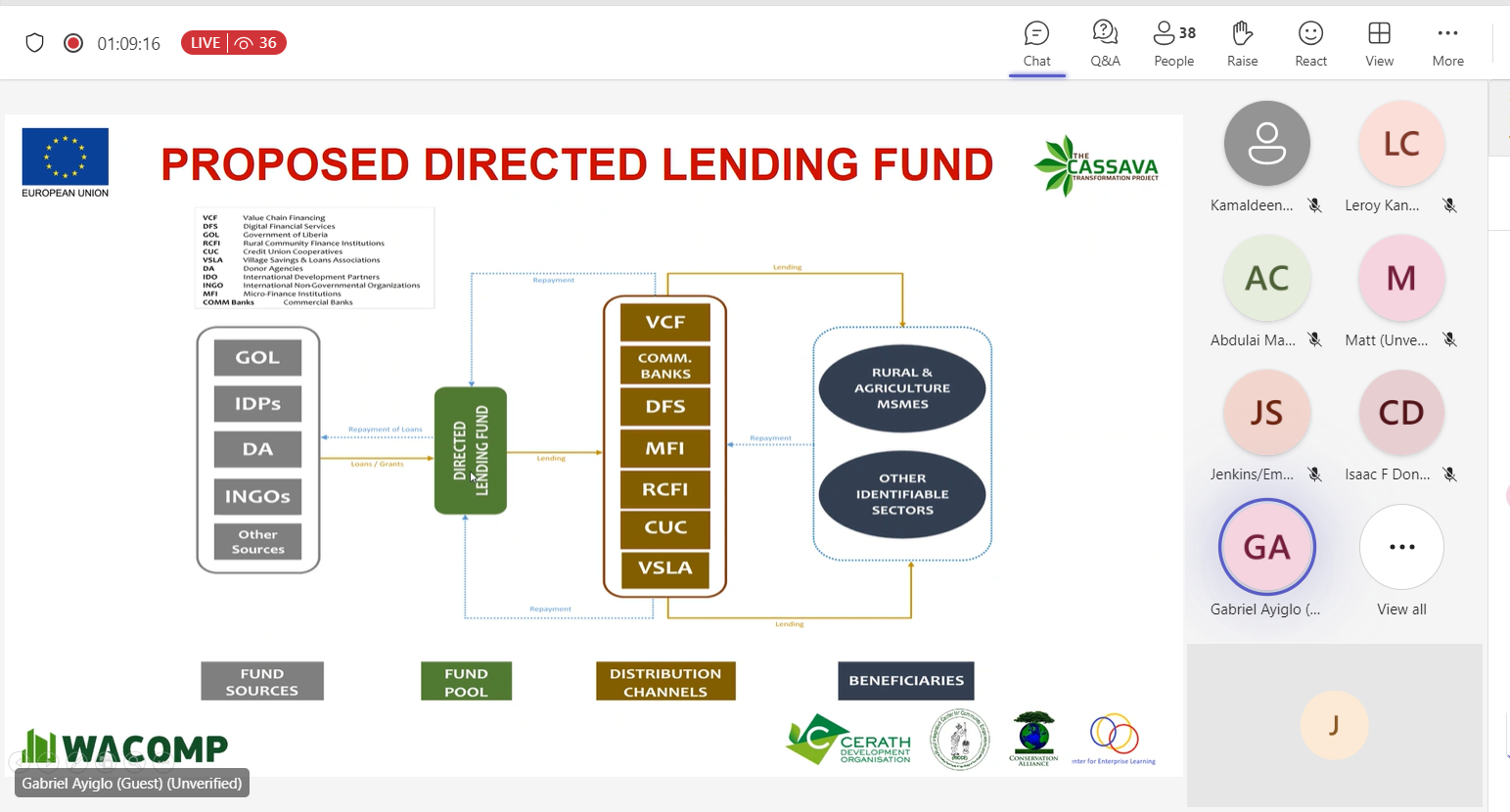On 11th April 2024, CERATH Development Organization held the Talking Agribusiness in Liberia project third communication event titled Second Stakeholder Validation of the National Agriculture Rural Financing Framework for Liberia. The focal point of the event was to provide a platform and facilitate discussion for agricultural rural financing for Liberia. The third communication event was organized in conjunction with the Talking Agribusiness in Liberia project and the Cassava Transformation Project (CASTRAP), all funded by the European Union (EU) under the West African Competitiveness Programme.
The event was a webinar, pulling together actors from Liberia’s donor community, civil society organizations, academia, and businesses. Amongst key organizations that featured in the webinar included representatives from the Ministry of Agriculture, Liberia; National Fisheries and Aquaculture Authority, Liberia; European Union; and USAID.
The event had three presentations on agricultural rural financing in Liberia. The first presentation was by Mr. Gabriel Ayiglo, the Consultant for the National Agricultural Rural Financing Framework under CASTRAP. Mr Ayiglo’s presentation was central to the theme of the event. His presentation was the “Proposed National Agricultural Rural Financing Framework”. He delved into the problem regarding access to finance and provided recommendations and proposed framework for agricultural rural financing for Liberia. Also, Mr Isaac Donkor, project manager for CASTRAP, made a presentation on “Workable/Working Agricultural and Rural Financing in the Southeast”. His presentation delved into topical subject such as cassava input financing, labour financing, and the success of the CASTRAP village saving and loans associations. Lastly, Maame Kyerewaa Brobbey, project lead for the Talking Agribusiness in Liberia project tabled findings from the research “A Demand-Side Exploration of Fisherfolk Access to Financial Services in Liberia”. Her research gave highlights on the constraints fisherfolk encounter regarding access to finance, their most preferred medium for savings, amongst others.
The webinar proved to be a significant milestone in advancing agricultural rural financing discussions in Liberia, bringing together a diverse group of stakeholders and experts. The presentations provided valuable insights into the challenges and opportunities in agricultural financing, particularly focusing on cassava transformation and fisherfolk access to financial services. The active participation and engagement of attendees, including representatives from key organizations and the donor community, underscored the importance of collaborative efforts in addressing the financing needs of Liberia’s agricultural sector. Moving forward, the recommendations and proposed frameworks presented at the webinar are poised to inform policy decisions and drive positive change in agricultural financing practices in Liberia.



